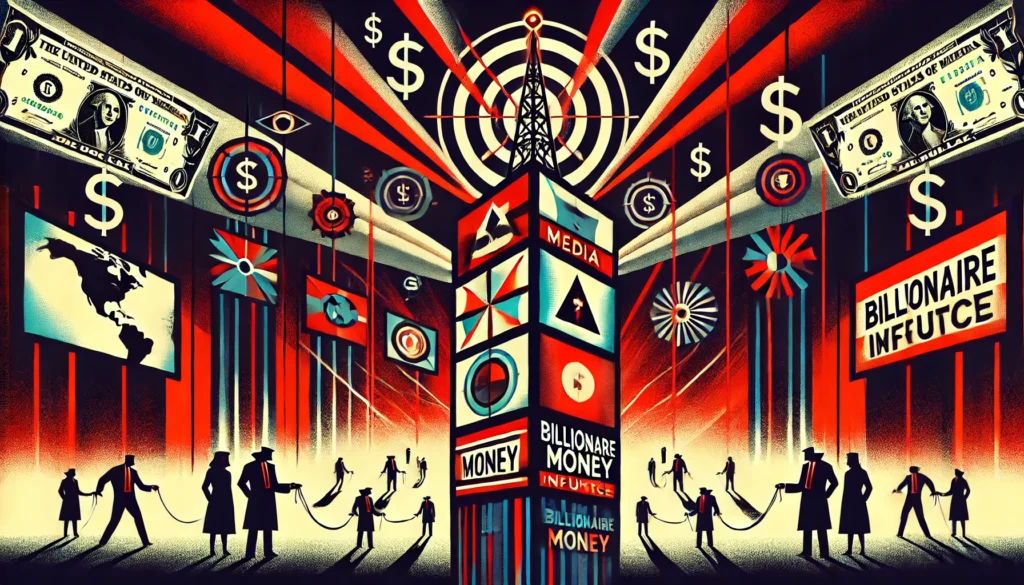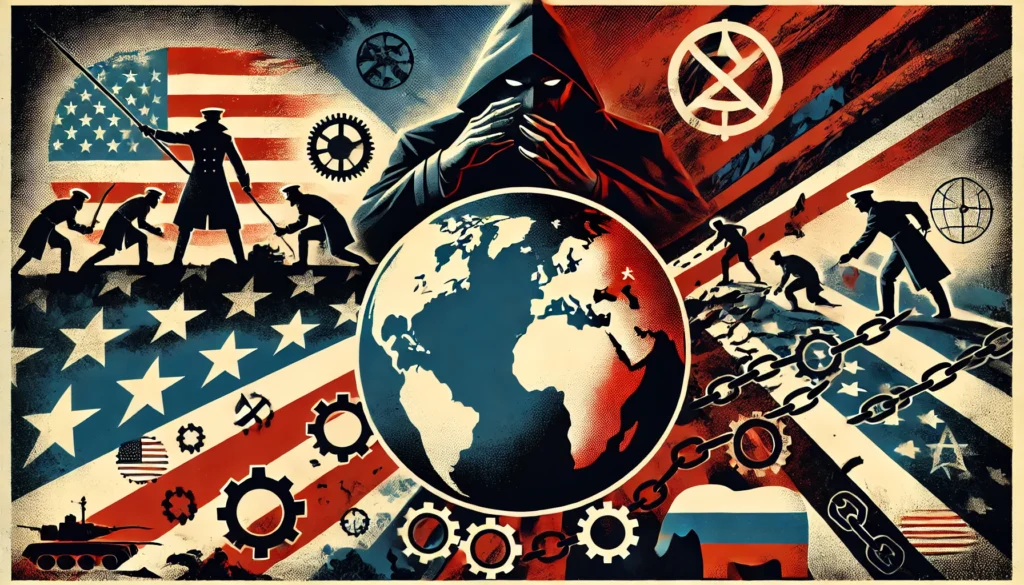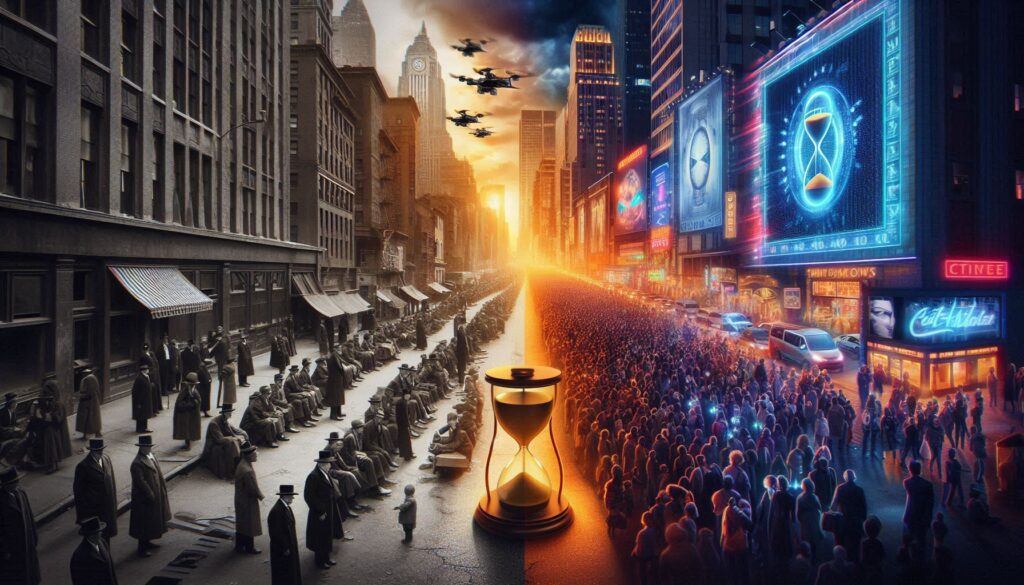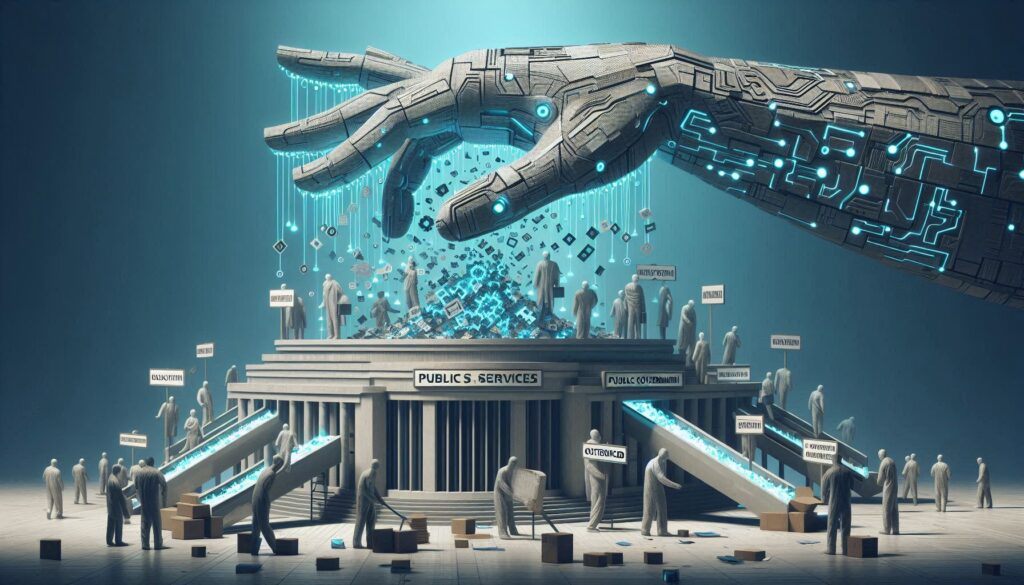In a striking twist of history, the United States appears to have returned to the 1980s—but this time, it’s the ’80s on steroids. Following Joe Biden’s decision to step down, Kamala Harris took up the mantle as the Democratic candidate, but she too was unable to counter the economic message that resonated deeply with MAGA voters. Her loss to Donald Trump echoed the defeat of Jimmy Carter to Ronald Reagan in 1980, marking a continuation of Reagan-era policies under the MAGA banner.

MAGA’s Amplified Reaganomics
MAGA’s resurgence has elevated Reagan’s message to new extremes, dismantling government infrastructure, pursuing rampant deregulation, and slashing social programs. For example, recent deregulatory measures have included significant rollbacks on environmental protections, such as reducing restrictions on oil and gas drilling, and weakening oversight of the pharmaceutical and financial industries. The Heritage Foundation’s 2024 report underscores these moves as part of a broader strategy to eliminate regulatory ‘burdens,’ which critics argue will disproportionately benefit corporations at the expense of public safety and environmental health. These policies have also spurred economic shifts, including a widening wealth gap and increased market volatility, as corporate power grows unchecked. In this landscape, corporations and the wealthiest 1% are left unchecked, exacerbating economic inequality and waging what many see as open class warfare on the American people.
Recent studies have shown that income inequality in the U.S. has reached levels not seen since the Gilded Age. The Institute for Policy Studies highlighted in 2024 that the top 1% of Americans now hold more wealth than the bottom 90% combined. MAGA’s policy agenda—cutting corporate taxes further and rolling back regulations on industries like fossil fuels and pharmaceuticals—has fueled fears of even greater wealth concentration.
Government institutions are being gutted, creating a power vacuum filled by billionaires whose influence extends into every facet of society, from legislation to media. For instance, Elon Musk and other tech magnates have significantly increased lobbying efforts, shaping policies in sectors ranging from space exploration to artificial intelligence, often sidelining ethical considerations in favor of profit.
Trump’s administration has taken full advantage of the Supreme Court’s conservative majority, which has granted him unprecedented presidential immunity. This legal shield has emboldened his actions, leaving the public bracing for sweeping changes that threaten the foundations of democracy and governance. The Brennan Center for Justice recently published an alarming report detailing how executive overreach has eroded checks and balances, raising red flags about the durability of American democratic norms.
Fear and Uncertainty at Home
As anxiety grips the nation, Trump’s campaign promises loom large. His proposals include mass deportations, such as the expansion of ICE raids targeting undocumented immigrants, dismantling key government agencies like the EPA under the guise of cutting bureaucratic inefficiency, initiating a trade war with China through aggressive tariff hikes that risk global economic instability, and prosecuting political adversaries, a move critics argue undermines the foundational principle of impartial justice in a democracy. For many, these actions evoke a dark period in history, drawing parallels to authoritarian regimes.
The Pew Research Center has documented a sharp increase in public distrust of neighbors and community institutions, fueled by fear of betrayal. Families facing deportation fear exposure by those they once trusted. This atmosphere of distrust and fear marks a chilling chapter in the American story. Acts of resistance, such as harboring undocumented immigrants, are growing, but so too are the risks, with reports of heightened surveillance and aggressive enforcement.
The Decline of America on the Global Stage
While domestic turmoil unfolds, the United States’ role on the world stage diminishes. Vladimir Putin and Xi Jinping are seizing the moment to assert a new world order, while regional powers like Israel, Iran, North Korea, and Saudi Arabia jostle to fill the void left by a retreating America.
The Economist recently analyzed the geopolitical shifts, noting how China’s Belt and Road Initiative has accelerated its influence across Asia, Africa, and Europe. Meanwhile, Russia’s military and cyber operations have destabilized regions critical to U.S. interests. With NATO alliances strained and American foreign policy in disarray, the global balance of power is tilting toward authoritarian regimes.

The Role of Billionaires and Media Fragmentation
Billionaires now wield unprecedented control over public opinion and policy, using dark money and media manipulation to maintain their grip on power. Recent examples include Elon Musk’s acquisition of Twitter, where algorithmic changes have raised concerns about selective amplification of voices, and Rupert Murdoch’s continued influence through Fox News, which shapes political narratives for millions of viewers. Additionally, groups like Americans for Prosperity have funneled billions of dollars into elections and lobbying, ensuring policies favoring corporate interests over public welfare. Studies from the Center for Responsive Politics reveal how untraceable political donations have further distorted democratic processes, exacerbating polarization and diminishing public trust in institutions. Traditional media—once a pillar of accountability—has been replaced by fragmented echo chambers, where truth becomes subjective and trust erodes.
A recent Columbia Journalism Review study highlighted how social media algorithms amplify division and misinformation, creating ideological bubbles. Meanwhile, legacy media’s declining revenue streams have led to layoffs and closures, leaving a vacuum filled by hyper-partisan outlets funded by wealthy individuals and interest groups. Dark money—untraceable political contributions—has further skewed democratic processes, with groups like Americans for Prosperity spending billions to shape elections and policies.
A Crossroads in the American Narrative
The current trajectory of the United States raises urgent questions about its future. Are we witnessing the unraveling of a democratic experiment, or will resilience and resistance rise to meet these challenges? The parallels to history are stark, the stakes immense, and the choices ahead pivotal.
The American story is at a crossroads. Historians and analysts agree that the next decade will define the nation’s place in the world and its commitment to democratic ideals. Whether through grassroots mobilization, policy reforms, or generational shifts in leadership, the fight for America’s soul is far from over. Its next chapter will define the nation for generations to come.




